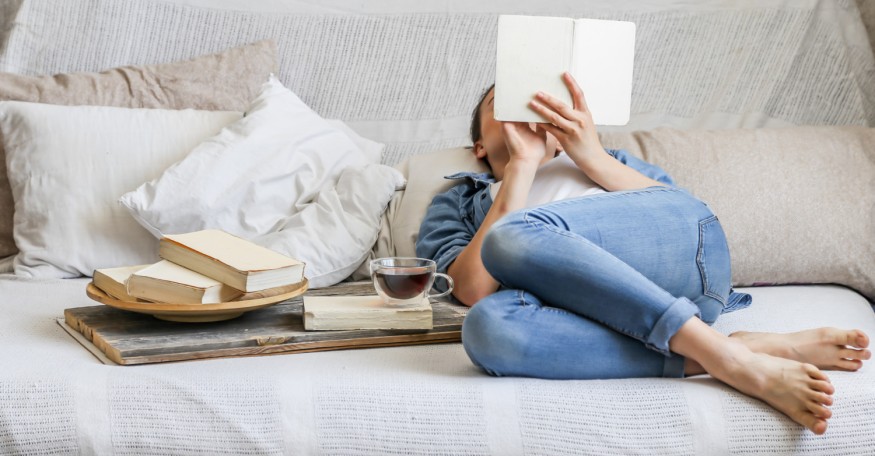
The line between work hours and personal time is increasingly blurring, and the call for a digital detox has never been louder.
"The constant ping of notifications and the glow of screens are not just background noise—they shape your daily routines, affect your sleep, and even alter your relationships," noted Francesco Gatti, CEO of Opensend.
Let's explore why digital overload may be a detriment to your work-life balance and provide a few helpful tips to get you back on track.
What Is Digital Overload?
The term "digital overload" might sound modern, but its effects are as old as time: stress, distraction, and a sense of disconnection.
"Acknowledging the signs of digital fatigue is pivotal to combat burnout," said George Fraguio, Vice President of Bridge Lending at Vaster. "It's those moments when the world through your screens becomes more real than the world around you that indicate it's time to step back."
Addressing digital overload isn't about turning off our devices for the sake of it. It's about creating space to breathe, see beyond the screen, and engage with life in a more meaningful way. Determining how to integrate technology into our lives without letting it consume them is a delicate balancing act.
What's the Science Behind a Digital Detox?
Engaging with screens less frequently and focusing on the physical world can sharpen our focus, deepen our sleep, and boost our moods. These benefits come from giving our brains a break from the constant bombardment of digital stimuli, allowing for a reset to our natural rhythms.
Judy Abel, Senior Strategist at Gyro, summed it up, saying, "The digital vacation trend is positive, even for the most digitally connected and savvy people. A break from digital communications (whether for hours or days) can refresh us, enabling us to become more productive in human relations and work. This break clears life from noise and allows the space to reconnect with ourselves, relax, and return to the digital world recharged."
This foundation supports the case for taking time away from our devices. Instead of cutting out digital interactions entirely, you can find a healthy, sustainable balance that allows for rejuvenation and, ultimately, a more enriched life.
How Can a Digital Detox Support Your Work-Life Balance?
Hopping on the digital detox bandwagon reshapes your relationship with technology to enhance your work-life balance. Here are a few tips to get started.
Designate Tech-Free Times
Consider setting aside specific times each day when you consciously choose to put away all digital devices. This could be during meals, the first hour after waking up, or right before bedtime. The goal is to create pockets of time that are reserved for non-digital activities, allowing you to connect with yourself and those around you on a deeper level.
"Implementing tech-free windows during your day can significantly reduce stress and improve personal connections," advised Cody Candee, Founder and CEO of Bounce. "It's a simple yet effective way to ensure you're not constantly consumed by digital noise."
By regularly disconnecting, you give your mind a chance to reset, fostering a sense of calm and presence that can enhance every aspect of your life.
Establish Physical No-Screen Zones

Creating specific areas in your home or workplace designated as no-screen zones can help reinforce your digital detox efforts. Whether it's the bedroom, dining room, or a cozy corner meant for reading and relaxation, these spaces encourage activities that don't involve screens, promoting healthier habits and interactions.
"Having physical spaces where screens are off-limits can dramatically improve your quality of life," pointed out Andrew Chen, Chief Product Officer of CommentSold, a company known for their Shopify live selling services. "It carves out sanctuaries for mindfulness and genuine engagement with others."
This strategy helps minimize the omnipresence of digital devices and makes room for more meaningful, fulfilling experiences through conversation, contemplation, or simply enjoying the moment.
Limit Notification Intrusions
One simple yet effective approach to reduce digital overload is to manage your notifications. By customizing which alerts you let interrupt your day, you can significantly decrease distractions and re-focus on important work and personal tasks.
Dr. Michael Green, Chief Medical Officer of Winona, noted, "Choosing which notifications to receive cuts down on unnecessary interruptions, allowing for deeper concentration and more quality time spent on activities that matter."
Empowering you to take control of your digital environment, this method reduces the constant pull of devices and enables a more intentional engagement with technology. It involves prioritizing your attention and making sure that you're only alerted to communications that require an immediate response.
Embrace Single-Tasking
Society often celebrates multitasking, but the art of single-tasking has become a powerful tool in the realm of digital detoxing. Focusing on one task at a time improves the quality of your work as it enhances your enjoyment of the task at hand, whether you're doing a work project or a personal hobby.
Roman Peysakhovich, CEO of Cleango, a company that specializes in commercial cleaning services, said, "Single-tasking allows individuals to immerse fully in their current activity, boosting productivity and satisfaction levels. It's a counterintuitive approach in a multitask-driven world, but it's incredibly effective."
Adopting a single-tasking mindset can transform the way you work and relax, making each moment more meaningful and productive. It encourages a deeper, more fulfilling interaction with the present, free from the distractions of simultaneously juggling multiple digital demands.
Reconnect with Nature
Stepping outside and spending time in nature is a powerful antidote to the digital world's constant buzz. By taking a walk in the park, a hike through the woods, or simply sitting in your garden, natural surroundings help lower stress, enhance your mood, and improve your overall well-being.
Marcus Hutsen, Business Development Manager of Patriot Coolers, emphasized the value of outdoor activities, saying, "Connecting with nature offers a unique form of detoxification from digital stressors. It revitalizes the senses as it promotes a sense of peace and well-being that screens cannot provide."
This reconnection with the natural world encourages mindfulness that helps make you more present in your daily life. It's a reminder of the world's beauty beyond our digital devices, offering a fresh perspective and a break from the virtual noise.
Opt for Natural Light Before Bed
The blue light from screens can trick our brains into thinking it's still daytime, making it harder to wind down and fall asleep. Swapping screen time for exposure to natural light or dim, warm lighting in the evenings can help align your body's internal clock and prepare you for a restful night.
"Artificial light exposure between dusk and the time we go to bed at night suppresses release of the sleep-promoting hormone melatonin, enhances alertness, and shifts circadian rhythms to a later hour—making it more difficult to fall asleep," stated Charles Czeisler, Ph.D., MD, Harvard Medical School and Brigham and Women's Hospital.
Incorporating this habit into your evening routine may improve the quality of your sleep. In addition to reducing screen time, this step respects your body's natural rhythms and creates an environment conducive to sleep.
Cultivate Creative Hobbies
Exploring creative activities like painting, writing, or playing music offers a refreshing break from screen time. These pursuits fuel your imagination and provide a sense of fulfillment and relaxation that's hard to find in your digital interactions.
"Diving into creative hobbies boosts your mood and mental clarity," said Maggie Brown, Founder and CEO of Recess Pickleball. "It's a way to express yourself and unwind without the glow of a screen."
By allocating time for creativity, you're not just stepping away from digital devices—you're stepping into a world of personal exploration and expression. It's an opportunity to discover new passions and enjoy the simple pleasure of making something with your own hands.
Consider Reaching Out to a Mental Health Professional
If you find the digital world overwhelming, talking to a mental health professional can provide strategies to manage stress and improve digital habits. They can offer personalized advice and coping mechanisms that cater specifically to your lifestyle and challenges.
"A professional can guide you through the process of establishing healthier digital habits, ensuring you maintain a balance that supports your mental well-being," noted Maegan Griffin, Founder, CEO, and nurse practitioner at Skin Pharm, a company that specializes in Botox in Austin.
This step might be especially beneficial for those who feel their digital consumption is linked to anxiety or depression. It involves finding support to navigate these challenges effectively, allowing for a healthier relationship with technology.
Ready to Detox?
In navigating the tech-saturated waters of modern life, small shifts can lead to significant changes. By adopting even a few of these digital detox strategies, you can pave the way toward a more balanced, fulfilling life where technology serves you rather than dictates your daily experiences.
"Embracing a digital detox isn't about renouncing technology but about forging a healthier relationship with it. It's the art of using tech as a tool to enrich your life, not as a master that governs it," said Dominique Zimmermann, CEO and Head Designer of Bombshell Sportswear, a company known for their line of scrunch butt leggings.
With each step taken to evaluate and adjust your engagement with technology, you move closer to a state of true contentment and meaningful connection.
© 2025 NatureWorldNews.com All rights reserved. Do not reproduce without permission.





